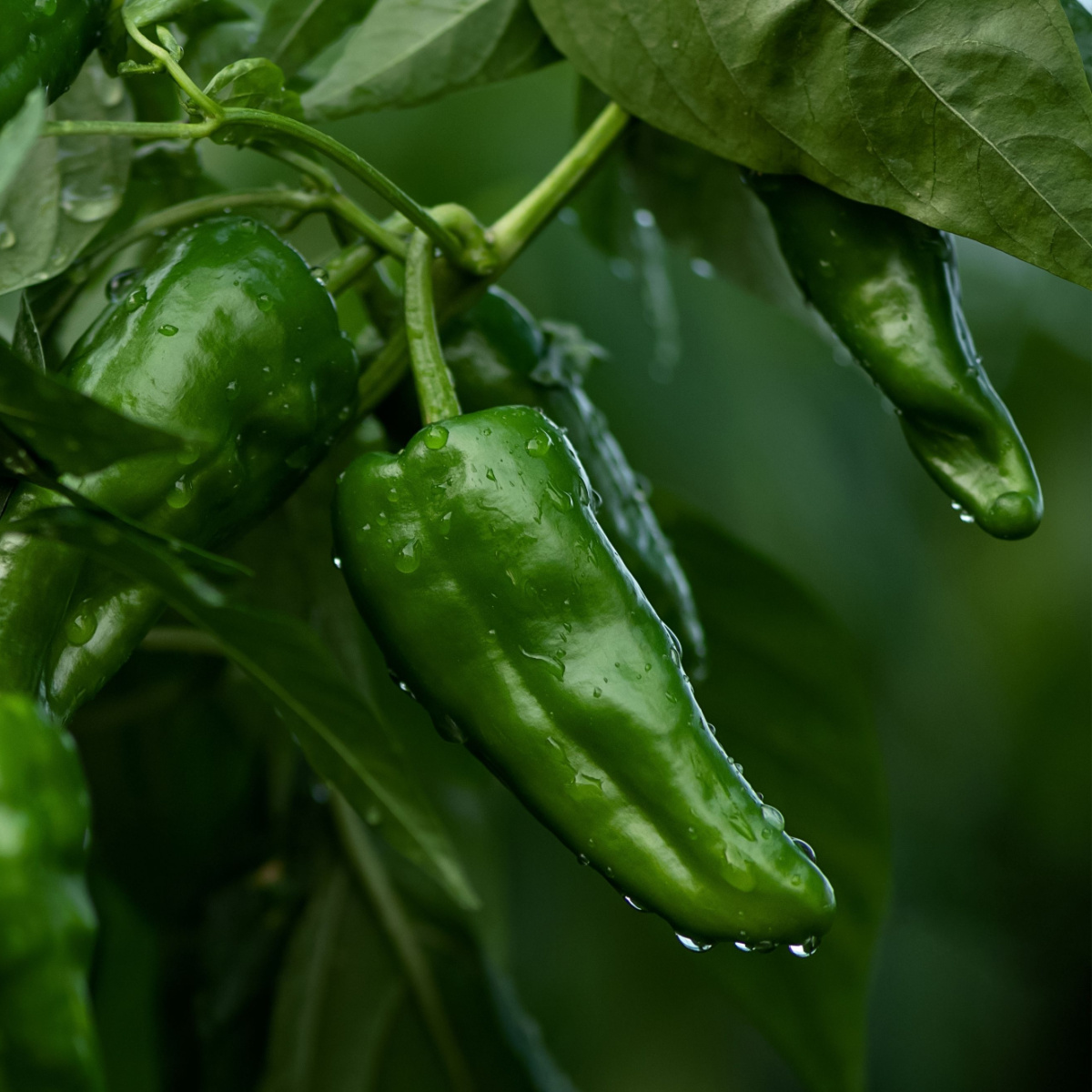Best Fertilizers for Peppers: Attain Superior Results in Your Garden
Organic Vs. Synthetic Fertilizers: Which Is Best for Nurturing Healthy Pepper Plants?
In the world of supporting healthy and balanced pepper plants, the choice in between synthetic and organic plant foods stands as a pivotal choice with significant implications. While both choices goal to provide important nutrients to support plant development, the nuances of their influence on the dirt, plant health and wellness, and the setting stimulate an argument that mirrors throughout the horticulture neighborhood. Comprehending the distinctive advantages and prospective challenges of each plant food kind is crucial for pepper farmers seeking to optimize their returns while keeping an eco-conscious and sustainable strategy.
Advantages of Organic Fertilizers
Organic plant foods supply a sustainable and environmentally-friendly technique to nourishing pepper plants, supplying vital nutrients without making use of synthetic chemicals. These natural plant foods are originated from organic resources such as compost, manure, bone meal, and algae, advertising soil health and biodiversity. Unlike artificial plant foods, organic options launch nutrients slowly, making certain a well balanced and constant supply for pepper plants to thrive.
One considerable benefit of organic plant foods is their capability to boost dirt framework and water retention. By boosting soil health, natural fertilizers promote advantageous microbial activity, which aids in nutrient uptake by pepper plants. Additionally, organic plant foods reduce the danger of chemical run-off, securing water resources from air pollution and securing the environment.
In addition, natural fertilizers add to lasting soil fertility by promoting the development of advantageous dirt microorganisms. These microorganisms aid damage down natural issue, releasing nutrients in a form that is conveniently accessible to pepper plants. best fertilizers for peppers. By cultivating a healthy and balanced dirt community, natural fertilizers sustain sustainable pepper farming techniques that benefit both plants and the environment
Disadvantages of Synthetic Fertilizers
Synthetic fertilizers, as opposed to their natural equivalents, position numerous disadvantages when made use of to nurture pepper plants, influencing both plant wellness and environmental sustainability. One significant downside of artificial fertilizers is their propensity to leach nutrients from the soil quickly. This rapid leaching can cause vitamins and mineral inequalities in the soil, triggering plants to struggle with deficiencies or poisonings. Furthermore, artificial fertilizers can damage advantageous dirt organisms, such as earthworms and helpful microorganisms, interfering with the soil ecological community's balance.
Moreover, the overuse of synthetic fertilizers can add to water air pollution. Excess plant foods not taken in by plants can wash away into water bodies, causing eutrophication, where algae blossoms deplete oxygen degrees in the water, damaging marine life. Furthermore, artificial fertilizers are typically derived from non-renewable sources, such as More about the author fossil fuels, adding to carbon emissions and environmental degradation throughout their production.
Nutrient Absorption Comparison
Reliable nutrient absorption plays an essential function in the general health and wellness and development of pepper plants. When comparing artificial and natural plant foods in regards to nutrient absorption, natural fertilizers have the advantage of supplying a more well balanced and slow-release source of nutrients (best fertilizers for peppers). Organic fertilizers include a selection of macro and trace elements that are not only helpful for the plants yet also advertise healthy dirt microbial task, which assists in nutrient uptake. On the other hand, synthetic fertilizers often give a fast release of nutrients, which can lead to leaching and runoff, resulting in reduced nutrient absorption prices by the plants.
In addition, natural plant foods improve soil framework and water retention capability, allowing pepper plants to gain access to nutrients a lot more efficiently. This better dirt quality promotes root advancement, allowing far better nutrient absorption. Synthetic fertilizers, although originally improving plant growth because of their high nutrient concentrations, may prevent long-term nutrient absorption by derogatory dirt wellness in time.
Environmental Influence Factors To Consider

On the various other hand, artificial fertilizers, although often more instantly available and focused to plants, can have detrimental impacts on the atmosphere otherwise applied effectively (best fertilizers for peppers). Their manufacturing needs high power inputs, causing greenhouse gas discharges and adding to environment adjustment. The runoff of excess synthetic fertilizers can contaminate water sources, informative post leading to eutrophication and harming marine ecological communities.
Best Plant Food Practices for Peppers
To achieve this, it is essential to look at this web-site follow finest fertilizer practices tailored to the details requirements of pepper plants. One important method is to execute a dirt test prior to applying any fertilizers.
Another important practice is to fertilize pepper plants at the best time. Normally, peppers take advantage of getting plant food at planting and after that once more when they start to flower. Over-fertilizing can bring about nutrient inequalities and hurt the plants, so it is essential to follow advised application rates.
Furthermore, choosing a well balanced fertilizer with an NPK ratio that fits pepper plants' demands is fundamental. Organic fertilizers, such as compost or manure, can be exceptional choices as they launch nutrients gradually and boost soil framework with time. Synthetic fertilizers can provide a fast nutrient increase when needed. Ultimately, combining organic and synthetic fertilizers sensibly can aid support healthy and balanced pepper plants while minimizing ecological impact.
Conclusion

Organic plant foods supply an environmentally-friendly and sustainable approach to nourishing pepper plants, supplying vital nutrients without the use of artificial chemicals. Unlike artificial fertilizers, natural alternatives launch nutrients gradually, making sure a steady and well balanced supply for pepper plants to grow.
Artificial fertilizers, in contrast to their organic counterparts, position various disadvantages when made use of to nurture pepper plants, affecting both plant health and ecological sustainability. When contrasting synthetic and organic plant foods in terms of nutrient absorption, natural fertilizers have the advantage of supplying an extra well balanced and slow-release source of nutrients.Moreover, organic fertilizers enhance soil framework and water retention capability, allowing pepper plants to gain access to nutrients much more successfully.